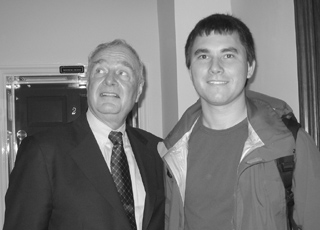Apparently, there is quite a substantial connection between the global meat industry and global warming. A report from the Food and Agriculture Organization concludes that the livestock industry generates 18% of all greenhouse gas (GHG) emissions. The figure includes feed production, the raising of animals themselves, as well as the transport and refrigeration of meat. Collectively, that is a larger share than all transport: cars, planes, etc. That quantity is both highly significant, and disproportionate to how livestock represents only 1.5% of global GDP. The report also describes the contribution of the meat industry to land degradation, water scarcity, and diminishing biodiversity. A summary of the report is also available.
Largely because of farming animals for meat, global concentrations of methane have more than doubled since the pre-industrial period. While those concentrations are still much lower than those of carbon dioxide, methane has 21 times more effect per unit volume. This seems unlikely to slow down any time soon, since global meat consumption has increased five-fold since 1950, and the rising GDP of many populous countries seems destined to perpetuate that trend.
Perhaps public figures hoping to show that they are serious about global warming should embrace vegetarianism or veganism instead of hybrid cars. While it is good that Canada’s Food Guide to Healthy Eating has been changed to list “Meat and Alternatives” as one of the four food groups, perhaps they should be more aggressively promoting a meat-free lifestyle; it is almost certainly healthier, and makes ethical and environmental sense as well.
This sort of reading often makes me feel that I should take the full leap to becoming vegan. That said, almost all the best things I eat involve milk or eggs. Giving up beef and tuna (with rare sashimi exceptions) was difficult enough. Giving up cheese is practically unthinkable.





